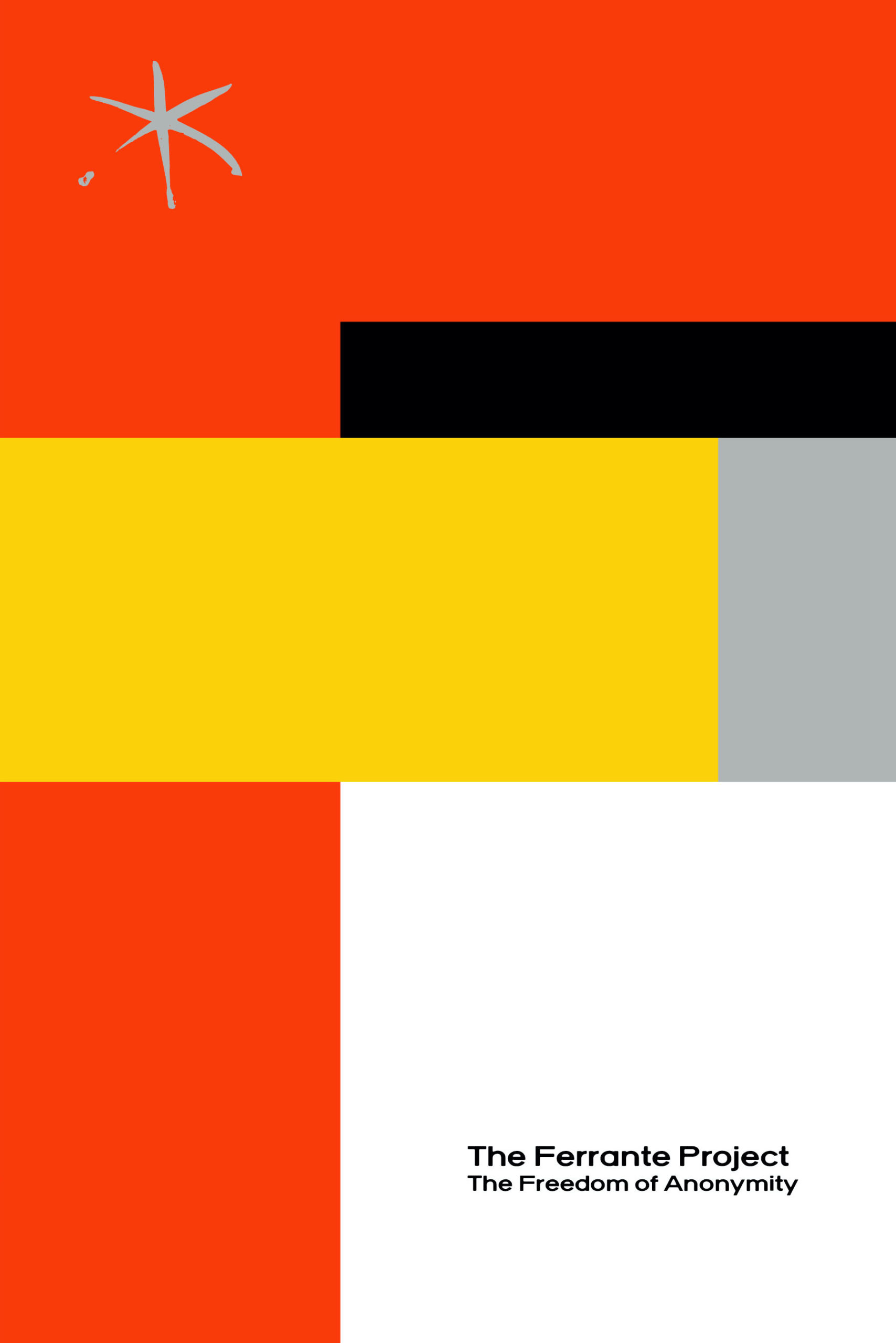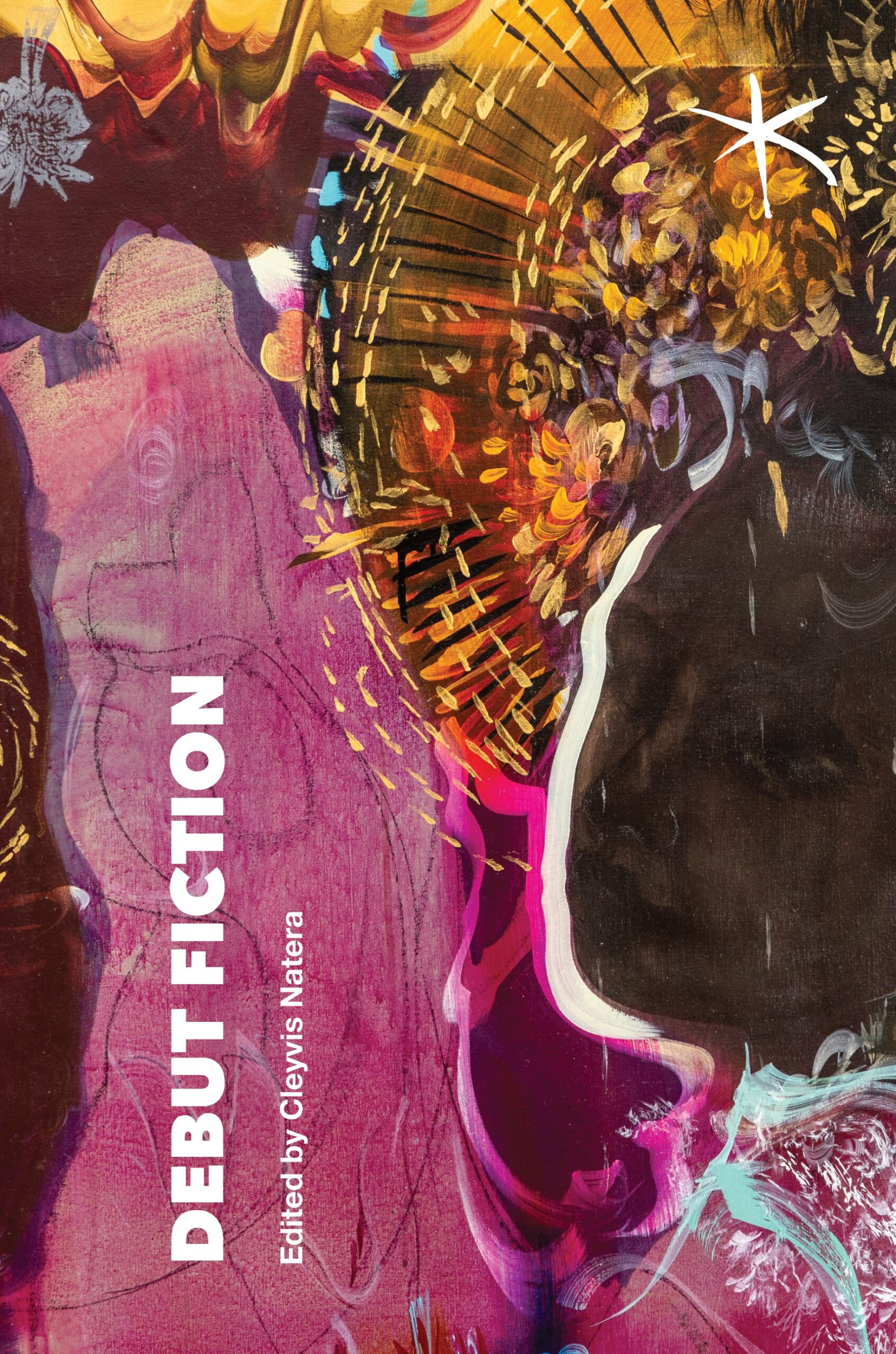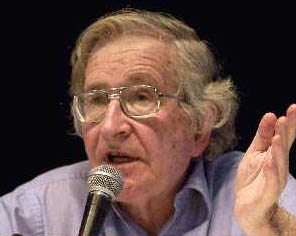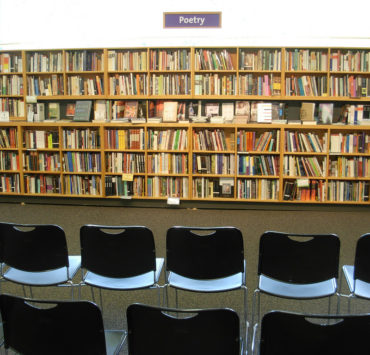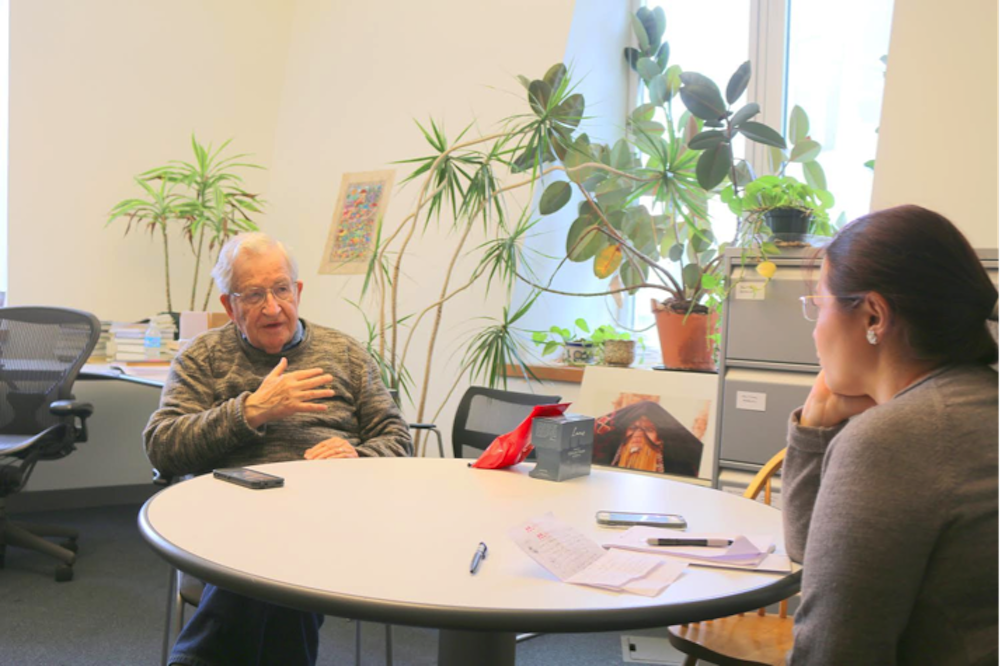
If only the people of the United States knew what their government is doing and the crimes it has committed, one might think, they would rise up and change it. But, in fact, even if they were to read all the books by Noam Chomsky and all the material released by WikiLeaks, they could still vote the same politicians back in power and, ultimately, reproduce the same society. Information alone is not enough. –Hardt and Negri, Declaration, 2012: 36
I have known Noam Chomsky’s ideas since 1990, while I was studying for a Master’s in communication. Later, in 1999 when I started teaching, I saw that my students were also amazed by his writings.
As he had in many other countries, Chomsky became a comrade of disobedient leftist movements in Turkey. In response to the Turkish Prime Minister (now President) calling protesters at Gezi Square çapulcu (looters) during the protests in the summer of 2013, Chomsky supported the protesters by holding up a banner that read: “I am also çapulcu.”
I was able to meet this amazing person, critical academic, researcher, public intellectual and worldwide activist during my stay as a visiting lecturer at MIT. Our interview, which focused on racism, took place in his office on October 7, 2014. We know that information alone is not enough for the struggle, as Hardt and Negri state above, but we will always need information from compassionate and determined scholars like Chomsky. If this information does not change others directly, it can at least strengthen us in our own struggle towards change.
US Media Coverage
MGB: [My husband and I] have been in the US more than a year and able to follow the media more closely. We are surprised that we hardly hear about Turkey on the news. When there is a big protest or a catastrophe, yes, we hear—but other than that, nothing. Turkey is not important for the US media.
NC: Not just Turkey. Nothing is reported here. For a couple of years, I went through the New York Times index just to see who was covered. The United States, of course, a huge amount on Israel. Then Latin America and Asia.
MGB: It is interesting that TV correspondents these days ask, “Where is Turkey?” They say, “We were supporting them for a long time through financial aid and so on. Now [the war against ISIS] is their war, and this is not our war. They should be [fighting], not us.”
NC: It is typical of reporting Turkey, only so far as it relates to US policies. For example, in the 1990s, when there were horrible atrocities being carried out in southeastern Turkey—thousands of villages were destroyed, people became refugees—all the arms were coming from the US. The flow of arms increased. There was no reporting. The New York Times has a bureau in Ankara and quite a good correspondent there. Nothing appeared about Turkish human-rights violations. In 2003, something extremely interesting happened. The US wanted Turkey to participate in the invasion of Iraq, and the Turkish refused. The government did not pay attention to the US, but simply responded to the population: 95% of the population was opposed. Turkey were bitterly attacked here. And at that point the press started to point to Turkish human-rights violations because Turkey did not follow US orders. That is the way it works. That is reporting Turkey, because it is not cooperating with the US coalition now.
MGB: Turkey accepted cooperating though this time to support the coalition.
NC: Yes, but they are not enthusiastic, so they get reported…
MGB: Media and freedom of speech are in a very bad shape now in Turkey.
NC: I first went to Turkey in 1999 to attend a court trial. A publisher published a book of mine. The publisher had been brought to the court. I went to visit the trial, and I insisted on being a co-defender in the trial. There was a lot of publicity on national television. I was interested to see how journalists wanted me to talk about Turkish atrocities. They asked things they could not report because it was the crime but wanted me to talk about on national television. So it was quite open.
MGB: We were also more optimistic for a while. There was an opening.
NC: There were lots of improvements—and then they went back. I think the reason for this reversion is this: the [European Union] made it very clear that no matter what Turkey does, they are not going to accept Turkey as a member. They keep claiming human rights. But every time Turkey passed some tests, nothing happened. The reason is that they do not want Turkey in the Union.
Forms of Race Discrimination in the US
MGB: With the Muslim population, of course…Here, when we watch the media, there is more qualitative reporting in the mainstream as well. Not on Fox TV, but in other mainstream media. But when we watched the Ferguson events after Michael Brown was killed by the police, there were racist connotations in the media. New York Times article claimed that he Brown was no angel by emphasizing that he was using drugs, had no success at school, and so on. Racism continues here. I personally think that if there was were no organized anti-racist power, the organization and solidarity among them, and protests, then things could be even worse. Racist remarks would continue to be made more openly.
NC: When you look at the New York Times, they do report racism in the South, but not much racism in the North, which is more settled. Take Boston. Take a look at the subway system in Boston. There is the subway here, the Red Line. Notice the route it follows: It goes to the edge of Cambridge. Why does it not go beyond to the western suburbs? Thirty years ago, right in the middle of the talk on racism and segregation, there was a proposal to extend the Red Line to the western suburbs, Arlington, and Lexington. They refused. Actually, I live there in Lexington. There are progressive, liberal, professional, and academic towns. They refused the extension, even though it would have been an enormous saving. It would have taken me 10 minutes to get to work instead of fighting traffic jams. Same for everyone else there. But they would not allow the subway to come because if they did, black kids from downtown Boston could get on the subway and walk around Lexington Center.
MGB: But what do people in Lexington think about it? If the people there are more progressive, why did they not support that?
NC: They do not talk about it. They think that it is just not polite to talk about it. That kind of racism does not get discussed. There is the racism of other people, not us. It is the same with school busing. Those kinds of things are not reported.
MGB: The food [in the US] is more industrial and unhealthy. Fresh food is expensive. You see, for example in fast-food places, that the customers are mostly people of color who cannot afford more expensive and refined foods. That is also a big issue.
NC: There is not a big black community in Boston. But if you go to Philadelphia, for example, there are miles and miles of places with black communities. There is no supermarket. The supermarkets are all in white areas. Blacks have to buy food from small stores, which have much higher prices. To go to supermarkets, you have to drive. Here, too. Supermarkets are almost all out of the city. These are forms of discrimination. Most severe is the drug war, which is completely racist—it was designed to be a racist war. It targets black males. Blacks do not use drug more than whites do, but blacks are the ones who are arrested. It starts from police practices all the way to procedures. That is why we have a huge black population in jail. The drug war was started in the 1980s. It is essentially criminalizing black life. After the Civil War, African Americans theoretically had rights. But when a black man was standing in a corner, he could be arrested if somebody said he looked at a white woman. He could be arrested with “attempting to rape”. He could not get out of jail. Even though it was a $10 fine, he could not pay. It ended up meaning a huge black male population in jail. Then they became a slave labor force. Literally. The American Industrial Revolution in the late 19th century was heavily based on slave labor in the prisons. For the capitalist owners, that is much better than slavery. If the state maintains [prisons], you get [the labor for] free. Lots of industry developed with slave labor, black labor, in prison. That went on up until the Second World War. Then couple of decades, in the 1950s and 1960s, of high growth, when a black man gets a decent job, unionized, could buy a house, kids could get to college. By the 1970s, that ended. We moved to a neo-liberal period. The unions were destroyed. Sharp cutbacks. Minimum-wage benefits declined, and pretty soon, we had drug war, which reinstated what happened in the 19th century. Black males went back to jail. Hispanics, too, but primarily black males. They work but do not get paid, of course. This is 500 years of American history. The first slaves came here to Massachusetts 500 years ago.
MGB: In the next decades, the population statistics show that people of color will be the majority in the US. Would it make a difference?
NC: No. Whites are becoming a minority. Hispanic population is growing fast. Then the Asian population and the black population. Part of the reason for the extremely reactionary character of the South and Southwest is that people there recognize they are becoming a minority. They say so: “It is not our country anymore. It is not White, English, Anglo Saxon.” Germany is the same. Did you read what Merkel said about the Turks?
Racism of Europe
NC: They say, “Look, they refused to have blue eyes. They cannot be assimilated.” [Racism] is even worse in Europe than here.
MGB: We also felt the same, compared to our experience in Europe.
NC: I am not surprised. Europe is unbelievable. The most oppressed people in Europe are Romans. Discrimination against them is horrible. The people are Holocaust victims. They were treated the same as Jews, literally by Hitler. France was expelling them to Hungary and Romania, where they were going to be killed. When you do to Jews, [the media?] explodes. But when you do to Romans, no one writes about it. It is the same with Islam in France. It is shocking. In the suburbs, where the North African population lives, the racism they face is astonishing. I always felt that Europe is more racist than the US. It is more visible in the US because of the legacy of slavery, but in attitudes, Europe is just horrible. It was not that visible in Europe because of a more homogenous community. Almost everybody was almost the same. As soon as immigrants come in, it becomes very clear. What happened in Denmark was striking. Remember in Denmark.
MGB: Cartoons against Muhammed.
NC: And there was a big uprising. The history is interesting. There is about 7% Muslims in Denmark. That is a pure white Nordic community with 7% Muslims. The Ministry of Culture made a speech. Shortly after that, the newspaper published this cartoon mocking Muhammed. That had a reaction.
MGB: Was it like a provocation?
NC: Two years before, that same newspaper received cartoons mocking Jesus. They refused to publish it. That is the history. That is Islamophobia. But the way [the issue] was represented here was that Muslims are terrible, do not allow freedom of speech. The actual story is pretty much different. These days, it is not getting better, either.
MGB: What do you think about the use of digital tools by social movements? We have at least witnessed Edward Snowden in the US. In Turkey, the Prime Minister’s corruption was at least revealed on the web. Do you have hope [for the Digital Age]?
NC: It is double-edged. It offers these opportunities, but also offers opportunities for white racists…What is unfortunate is that people are drawn to positions very much like their own. Say, the New York Times. Yes, there is a lot of criticism. Nevertheless, when you read the New York Times, at least you get some range of opinion. When you go to the Internet, what people do is to go to exactly these places where their opinions are expressed. So if you are on the left, you go to DemocracyNow; if you are on the right, you go to Fox News. You just never hear other opinions. People are getting restricted to their own point of view, which gets reinforced because that is what you hear.
MGB: Pew Research Center revealed that there is a kind of spiral of silence about Snowden on social media. He is not discussed much. When he is, it is in places to get approved. No one wants to be outside the spiral.
NC: Interesting. Here, I did some experiments and asked what kids in the last generation see. How do they react? Most of them do not seem to care very much.
Noam Chomsky is Institute Professor in the Department of Linguistics and Philosophy at the Massachusetts Institute of Technology, Boston. A member of the American Academy of Science, he has published widely in both linguistics and current affairs. His books include At War with Asia, Towards a New Cold War, Fateful Triangle: The U. S., Israel and the Palestinians, Necessary Illusions, Hegemony or Survival, Deterring Democracy, Failed States: The Abuse of Power and the Assault on Democracy and Manufacturing Consent: The Political Economy of the Mass Media.
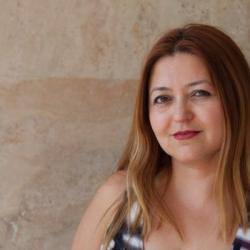
Mine Gencel Bek is a professor at the Department of Journalism, Faculty of Communication, Ankara University. She completed her Ph.D. at Loughborough University in 1999 with the thesis Communicating Capitalism: A Study of the Contemporary Turkish Press. This analysis included the structural elements of the changing industry, news as texts, and the role of journalists in the news-production process. For that thesis, she conducted interviews with journalists and editors and investigated the news production process. Her publications have a wide range of issues: the political economy of Turkish media; the media policies in the European Union and Turkey; media professionals and textual analysis of news in press and TV on the issues such as tabloidization and representation of women and children. Common to all of her work is criticism of unethical practices of irresponsible media and the call for the democratization of societies for freedom and equality, and the democratization of the media, with a special focus on journalism. Her current research is on the comparative media systems, journalism practices, and technological innovations.


